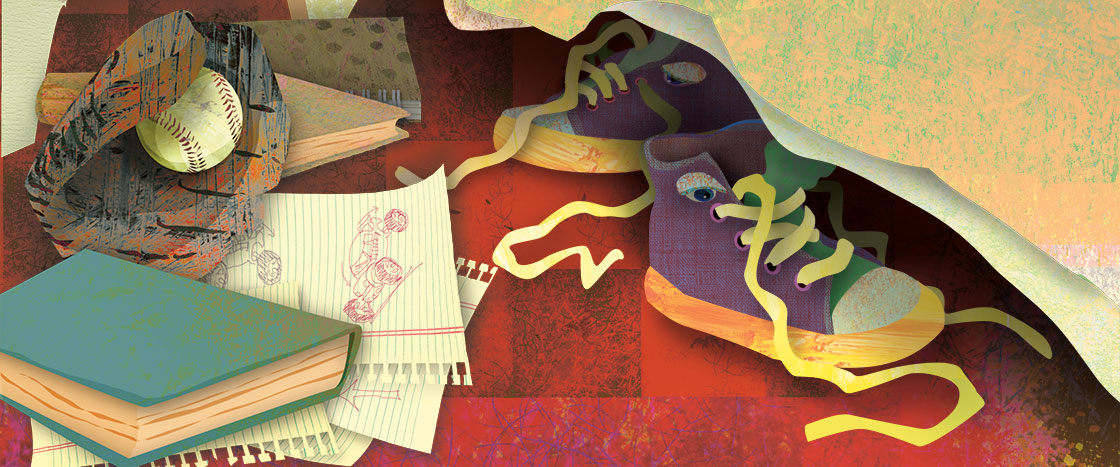
Ode to My Shoes
This gentle poem imagines the slumber of a trusty pair of shoes.
Learning Objective: Students will identify examples of personification in a poem and explore how they help express the poet’s feelings.
Standards
More About the Story
Skills
Personification, inference, main idea, poetry writing
Complexity Factors
Levels of Meaning
In this poem, the speaker imagines the dreams and feelings of a pair of shoes—dreams and feelings that might mirror the speaker’s own.
Structure
The poem consists of four stanzas. It uses a great deal of personification. It has no punctuation; readers must figure out where sentences begin and end.
Language
The language is accessible for young readers, though the word “revisit” might be unfamiliar to some.
Knowledge Demands
No special background knowledge required.
1. Preparing to Read
Set a Purpose for Reading (2 minutes)
- Call on a volunteer to read the Up Close box for the class.
- Explain that personification means giving human traits, actions, thoughts, or feelings to something that is not human.
2. Reading the Poem
Read the poem aloud for the class or play our audio version. Then discuss the following questions.
Close-Reading and Critical-Thinking Questions (15 minutes, activity sheet online)
- Tired, in line 5, is an example of a human feeling the poet gives to shoes. What else do the shoes do or feel that makes them seem human? (personification) The shoes “rest,” “fall asleep,” “dream,” “wake up,” and are “cheerful” and “relaxed.”
- What do the shoes dream about? Why do you think they dream that? (inference) They dream of walking and going back to the places they went to during the day. They probably dream this because, like people, they relive in their dreams what they do in real life.
- Reread the last verse. How do you think the poet feels about his shoes? Why do you think that? (inference) The poet has warm, affectionate feelings about his shoes. He describes them as “cheerful” and “so soft”; they seem like an old friend who makes him happy.
- An ode is a poem that expresses love or respect for someone or something. Why do you think the title of the poem is “Ode to My Shoes”? (main idea) The poem expresses the poet’s love and respect for his shoes, which cheerfully and comfortably take him wherever he goes.
3. Skill Building
Distribute our poetry-writing activity, which will guide students to write their own odes to an object, using this poem as a mentor text.
Find this poem in Spanish in Bellybutton of the Moon and Other Summer Poems by Francisco X. Alarcón.
